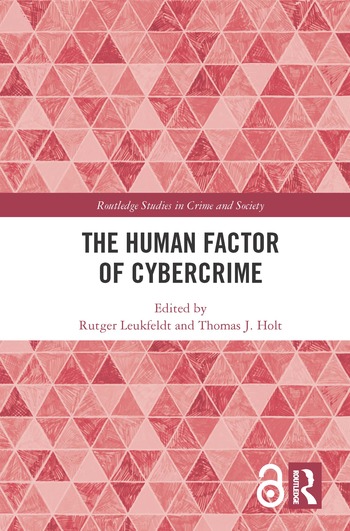

Open Educational Resources or OERs are freely accessible resources such as textbooks, lecture slides or videos. This benefits teachers and students alike as it means that the resources are accessible anywhere, to anyone, for free. They reside in the public domain or have been released under an open license that permits no-cost access, use, adaptation and redistribution by others with no or limited restrictions (UNESCO, 2019). Take a look at some of these resources below, in relation to Cybercrime/Cybersecurity.
How do you pick up a malicious online virus, the kind of malware that snoops on your data and taps your bank account? Often, it's through simple things you do each day without thinking twice. James Lyne reminds us that it's not only the NSA that's watching us, but ever-more-sophisticated cybercriminals, who exploit both weak code and trusting human nature.

Available through OAPEN, this book focuses on the human factor in cybercrime: its offenders, victims, and parties involved in tackling cybercrime. The distinct nature of cybercrime has consequences for the entire spectrum of crime and raises myriad questions about the nature of offending and victimization
As the leading organization in computer security training, the SANS Institute is known for providing intensive, immersion training designed to help you and your staff master the practical steps necessary for defending systems and networks. October 2023 Applying psychological principles to educating end users about cybersecurity is nothing new; security awareness teams have long relied on behavioral science to influence best practices. But “cyberpsychology” as a unique discipline is having a moment, and its implications go far beyond Cybersecurity Awareness Month.
NIST (National Institute of Standards and Technology)
NIST develops cybersecurity standards, guidelines, best practices, and other resources to meet the needs of U.S. industry, federal agencies and the broader public.
Journal of Cyber Security and Mobility
The journal covers new activities and research in Cyber Security that aims to protect individuals' and organizations' systems, applications, computing devices, sensitive data and financial assets against computer viruses, sophisticated and costly ransomware attacks, and everything in between.
Characteristics of Cybersecurity Victims at Clark Atlanta University
A Poster presentation at 24th Annual CyberPsychology, CyberTherapy & Social Networking Conference (CYPSY24) at Norfolk State University in Virginia, USA. This study focused on the psychosocial characteristics of an under-represented segment of the population in cybersecurity research. The results support past research on the relationship between the demographic variables and cybersecurity victimization, but shed new light on these relationships in the minority population.
What motivates hackers? What are their psychological manipulation techniques? How can we become a "human firewall'"? More than 90% of cyberattacks are due to human error. Humans are the weakest link in Cybersecurity. But something can be done. Mark T. Hofmann is a Profiler, trained and certified in the US. He is a university lecturer for Behavioral- & Cyber Psychology and sought-after Keynote Speaker on Cybersecurity. Hofmann has met and anonymously interviewed hackers and will take you on a journey into the mind of the perpetrator. Get an inspiring insight into the psychology of cybercrime from one of the best-known profilers. He focuses on the human factor and shows how we can become a "human firewall" and detect social engineering attacks